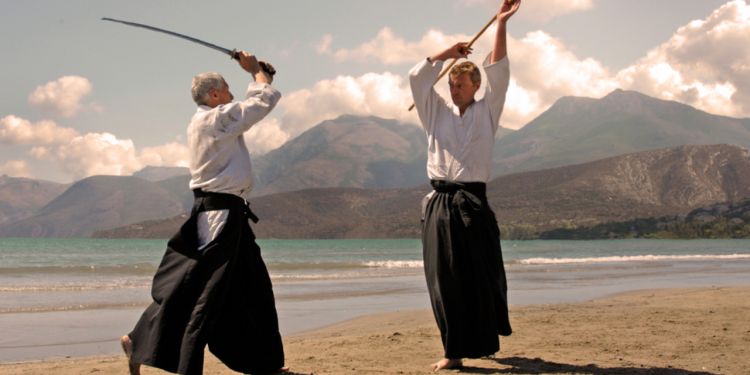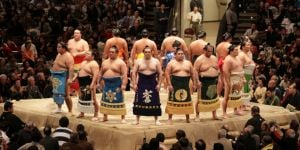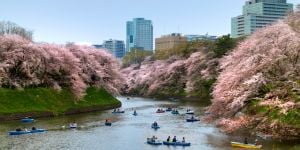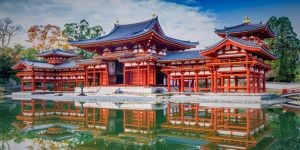
Did you practice a sport before moving to Japan, whether for leisure, passion, or even professionally? Are you looking to pick up your training or discover other sports? Before putting on your sneakers and challenging the stopwatch, take a break to discover the popular sports in Japan.
Baseball in Japan
Baseball is Japan's national sport, which brings together generations of people and families in stadiums or in front of TV sets to support the Nishinomiya Hanshin Tigers, the Tokyo Yomiuri Giants, and the Buffalo Osaka Orix. In 2023, Japan won the World Baseball Classic. After that, Japanese athletes excelled in various sports, such as basketball, handball, track and field. They also achieved great success at the Asian Championships and the Para Championships.
If you are in the mood for sports, go to the baseball field to practice. You will indeed find one in your city. Otherwise, a simple flat field will do. If you don't have a team with you, take up catch ball. You only need a baseball glove, a ball, and two players. One throws, and the other catches. There is no need for big equipment. You can play it anywhere. Before hitting the bat, practice your aim.
Sitting in the home team's cheering section can be a fun experience, so why not get tickets there for the whole experience? Except for Yomiuri Giants and Hanshin Tigers games, which tend to sell out, tickets for most games can be bought at the stadium on the day of the game.
You can also purchase tickets on the teams' websites, at the stadium ticket offices, or through other reservation websites in advance. Ticket prices range from 1,000 yen to 15,000 yen (source: Japan Guide).
Sumo wrestling in Japan
Sumo wrestling, Japan's national sport, is rooted in a Japanese Shinto ritual where a human wrestles with a god. The popularity of sumo tournaments began in the late 17th century at the Tomioka Hachiman-gu Shrine in Tokyo. Every year, six major sumo tournaments are held across Japan, with three in Tokyo, one in Aichi, one in Osaka, and one in Fukuoka. These tournaments last for 15 days each in:
- Tokyo: January, May & September (Ryogoku Kokugikan);
- Osaka: March (Edion Arena Osaka);
- Nagoya: July (Dolphins Arena);
- Fukuoka: November (Fukuoka Kokusai Center).
In addition to the big tournaments mentioned above, you can watch sumo wrestling in Japan at regular exhibitions. You can also tour a sumo room (or sumo heya), where the wrestlers practice and live (source: Jrailpass.com).
Soccer in Japan
Soccer is another popular sport in Japan, along with baseball and sumo wrestling. The Japanese national soccer teams are highly ranked in Asia, with the men's team known as the "Samurai Blue" and the women's team as "Nadeshiko Japan". The women's national team made history by winning the 2011 World Cup, becoming the first Asian team to do so.
Japan has a pyramidal system for competitive soccer, with the professional J1 League at the top, followed by the semi-professional Japan Football League. Currently, the J1 League season lasts from early March to early December. However, it will have a new schedule starting in 2026, beginning in August and ending in May of the following year.
The matches are usually held on Saturday afternoons, but most of them occur in the evenings during the summer. You can check match schedules and buy tickets via the official J.League website.
Walking, hiking, and running in Japan
Walking is a great all-round sport, gentle on the joints and a great cardio workout. It only requires a little equipment, complex infrastructure, or a gym membership. You just need to invest in a decent pair of walking shoes (not to be overlooked), and you're good to go on the trails in your neighborhood. If you are lucky enough to live in the countryside or near a park, your workout will also be a well-deserved green break. You will find many walking paths wherever you are in Japan.
Hiking enthusiasts like Karôzan in Fukushima or Chausuyama in the Aichi prefecture have their favorite spots. Hiking is a very popular sport in Japan. The same goes for running, with tracks designed for joggers everywhere in the country. Invest in a good pair of sneakers and go running for adventure.
Cycling in Japan
Cycling is also popular in Japan. You might have already found yourself at a pedestrian crossing, surrounded by a horde of bikes. Bicycles are used to go to school, college, and high school. They are also used as a "housewife's mountain bike" (the famous mamachari with its shopping basket in front). They can be customized as a competition bike for employees who are always in a hurry. Bikes are everywhere.
If you are more of an outdoor cyclist, there are many clubs in the country that you can register with, such as Minato Cycling Club. If you are more of a track cyclist or want to experience different riding, why not try keirin, Japanese track cycling? The word literally means "battle on wheels" because it is a track battle with very specific rules. The sport was highlighted during the last Olympic Games in Tokyo, especially the women's keirin.
The ideal seasons for cycling in Japan are Spring (March to mid-May) and Fall (September to mid-November), as the weather is neither too hot nor too cold. The temperature usually ranges from 15°C to 22°C during these periods. However, due to Japan's vast latitudinal range, there may be some regional differences in weather.
The Yosakoi dance in Japan
Here is a dance that has been taking over the world. Playful, cheerful, and lively, Yosakoi is a group dance created in 1954 in the prefecture of Kochi. At that time, everything had to be rebuilt in post-war Japan. This dance was born from the will to combat the economic gloom and revitalize the commercial districts.
The Yosakoi is a dance of joy, peace, and communion. Positive energy can be felt in the free dance movements. Sportsmen and women perform in the many matsuri (festivals) that occur all over Japan. Their unique style can also be seen in their very colorful costumes. The aim is again to instill positive energy. Get ready to sweat a lot.
Yosakoi is a sport in itself. Whether you live in Kawasaki, Kagoshima, Akita, or Tottori, you will surely find a Yosakoi club.
Sports for all in Japan
Golf, basketball, figure skating, athletics, volleyball, badminton, swimming, rugby, yoga, gym, kendo, tennis, squash, karate, climbing, horseback riding, table tennis, judo, soccer, you name it, not to mention indoor sports; an entire world of sports is waiting for you in Japan.
Choosing your sports
Do not hesitate to talk to your doctor before taking up a sport, especially if you have not done so for a long time. A physician will be able to guide you to the right sport based on your medical history.
Find a sports club
The best place to start your search for a sports club is at your local town hall (or visit their website). Ask for a list of available sports clubs. As a resident of the municipality, you can get discounts. This is a good opportunity to boost your motivation to resume physical activity.
Useful links:
We do our best to provide accurate and up to date information. However, if you have noticed any inaccuracies in this article, please let us know in the comments section below.












Comments
1